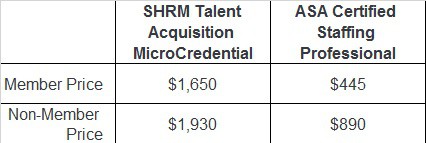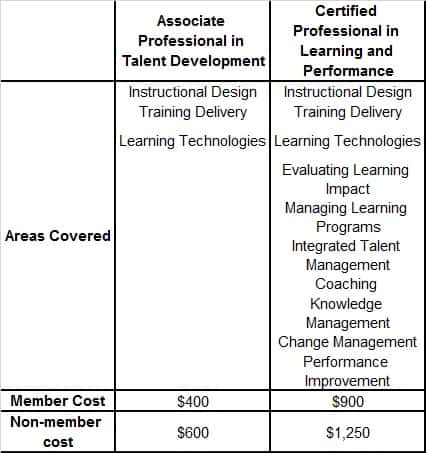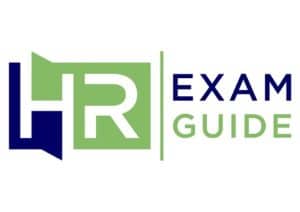When I began my career in HR, I assumed that I’d follow a generalist career progression. Now that I’ve spent some time in the field, I decided to do some research to explore some of the other career paths available to HR professionals.
List Of Careers in Human Resources. If you enter the HR profession there are several different career paths that you can take:
- Talent Planning and Acquisition
- Learning and Development
- Total Rewards
- Employee Relations and Engagement
- HRIS
- HR Generalist
Talent Planning and Acquisition
The goal of talent planning and acquisition professionals is to ensure that an organization is staffed with employees who have the skill sets needed to help it achieve its objectives. On the one hand, it serves as the marketing arm of the Human Resources function because it communicates the company’s employer value proposition with the hopes of attracting the right talent. However, in some companies, the role is also focused on grooming and retaining existing talent while also developing succession plans so that there’s a clear replacement for key personnel who exit the company.
What are some examples of job titles?
Recruiter, Talent Specialist, Talent Advisor, Recruiting Advisor, Sourcer, Recruiting Coordinator
What training or certifications are useful?
There are a few recruiting certifications out there, but the two most notable are SHRM’s Talent Acquisition MicroCredential and ASA’s Certified Staffing Professional. The former is geared toward Talent Acquisition professionals working in an organization, while the latter is for those interested in working at a staffing agency.

What’s the salary like?
Early career Talent Acquisition Specialists have a median income of $52,641, But this will increase significantly as you gain more experience or if you work on sourcing executive or challenging technical roles.
Learning and Development
The Learning and Development (L&D) field is a fast-growing Human Resources specialty concentrated on developing and overseeing employee training programs. L&D managers ensure that employees take meaningful training classes that align with their individual and organizational goals. And they must assess the effectiveness of training to determine whether it has resulted in the desired skill development. This field requires excellent communication and analytical skills. In some cases, the L&D manager will be leading training courses themselves, but they must also be capable of analyzing whether training should be handled in house or outsourced to a vendor. Technological advancements have expanded the channels where training can be offered so Learning & Development managers may also be responsible for administering a Learning Management System(LMS) where employees can take self-guided instruction on a variety of topics.
What are some examples of job titles?
Learning and Development Specialist, Learning and Development Manager, Training and Development Specialist
What training or certifications are useful?
The Association for Training Development is a professional organization for Training and Development professionals that also administers talent development certifications. They offer the Associate Professional in Talent Development for early-career professionals or for those whose experience has been focused on instructional design, training delivery, and learning technologies. Additionally, they offer the Certified Professional in Learning and Performance, a two-part exam, for more experienced professionals with a broad-based training background.

What’s the salary like?
In May 2018, the BLS reported that the median pay for Training and Development Specialists was $60,870, however, pay nearly doubles at the managerial level.
https://www.bls.gov/ooh/management/training-and-development-managers.htm
https://www.bls.gov/ooh/business-and-financial/training-and-development-specialists.htm
Total Rewards
Total Rewards is a holistic approach to motivating employees by offering development opportunities, benefits, rewards, and direct and indirect compensation to attract and retain talented employees. These roles are typically found in medium to enterprise-sized firms, and the duties depend on the organization’s strategic objectives. For example, some Total Rewards managers are tasked with the development, implementation, and administration of employee benefits programs. While others are tasked with benchmarking compensation and benefits to ensure competitiveness within their market. And, you may have others that do it all!
What are some examples of job titles?
Total Rewards Manager, Compensation and Benefit Manager, Compensation Analyst
What training or certifications are useful?
Two certifications are well regarded for Total Rewards professionals – Certified Compensation Professional and Certified Employment Benefits Specialist. Both are rigorous multi-part exams, but they differ in that the CCP is focused only on compensation and the CEBS encompasses compensation and benefits.

What’s the salary like?
Total Rewards is a high paying HR specialty with Compensation, Benefits and Job Analysis specialists earning a median pay of $63,000. At the managerial level, you will see median wages of $121,010 per year.
Employee Relations
Employee Relations professionals are concerned with building a company culture where workers are engaged and feel like their voices are heard. They are also responsible for mediating issues between staff members and also between employees and management. Also, they investigate employee concerns about unfair treatment at work, harassment and discrimination complaints and propose solutions to resolve them. A company will be more productive and have loyal employees if its culture is motivating and instills a strong sense of pride. Employee Relations managers can affect this by designing and implementing employee engagement programs that recognize employee contributions and reinforce an organization’s core values.
What are some examples of job titles?
Employee Relations Specialist, Employee Relations Manager
What training or certifications are useful?
The Industrial and Labor Relations School of Cornell University offers several certificates focused on different aspects of employee relations. Most of these programs take 18 months to complete and require attendance at in-person multi-day workshops.
- Advanced Collective Bargaining
- Advanced Employee Relations and Internal Investigations
- Collective Bargaining
- Contract Administration
- Diversity and Inclusion Professionals
- Equal Employment Opportunity Professionals
- Managing Organizational Conflict
What’s the salary like?
According to the most recent Payscale data, an Employee Relations Assistant has a median starting salary of $40,000 while Employee Relations Managers can anticipate a median salary of $74,192.
HRIS
HRIS Managers are the technology arm of the Human Resources function. Depending on the organization, HRIS managers may find themselves responsible for maintaining data integrity of the HRIS system, providing user support and training, and building complex reports computing HR metrics for other functional areas in an organization. Someone in this role needs to be comfortable working with databases, have excellent analytical skills and a solid understanding of the Human Resources function.
What are some examples of job titles?
HRIS Analyst, HRIS Manager
What training or certifications are useful?
The Human Resources Information Program certification is designed specifically for HR professionals responsible for information management. The certification costs $385 for members and $485 for non-members.
What’s the salary like?
According to Payscale data, HRIS is a top paying human resources specialty. The average salary for an Analyst is $65,735 and $87,919 for someone at the managerial level. This can be even higher if you’re skilled in specialty software like Workday or SAP SuccessFactors.
HR Generalists
HR Generalists have broad responsibilities that will touch on all of the specialties mentioned above. The organization’s size, culture and industry will determine exactly how much time an HR professional will spend on a given HR functional area.
What are some examples of job titles?
HR Coordinator, HR Manager, HR Generalist, People Operations Manager,
What training or certifications are useful?
HRCI and SHRM are the definitive certifying bodies when it comes to HR certifications in the United States. HRCI administers eight different professional certifications for students, early-career professionals, and senior career professionals. SHRM currently only offers two certifications for students/early career professionals and senior-level candidates.
What’s the salary like?
Payscale reports that an entry level HR generalist will earn on average $45,488, but if you can work your way up to an HR Director level, the median pay is $87,675
Related Questions
What is the difference between HR specialist and HR generalist? An HR generalist is a versatile HR professional responsible for overseeing all of the HR functional areas within an organization. Whereas, an HR specialist only focuses on one or two such as Payroll and Benefits or Employee Relations
Is HR a good career? Human Resources is an excellent career choice with many different career paths. If you enjoy variety, you can work as an HR Generalist and touch on all of the HR functional areas. Or you can choose to become a specialist and focus on an area that you’ve taken a particular interest in.
